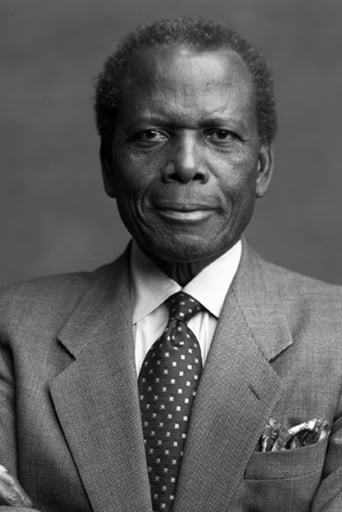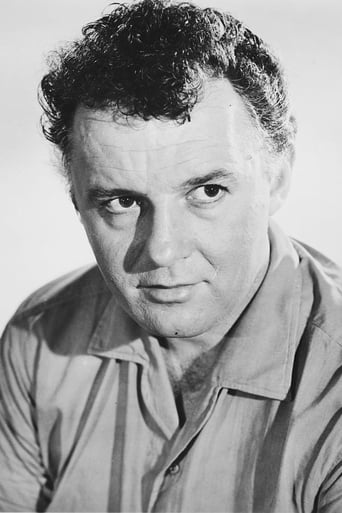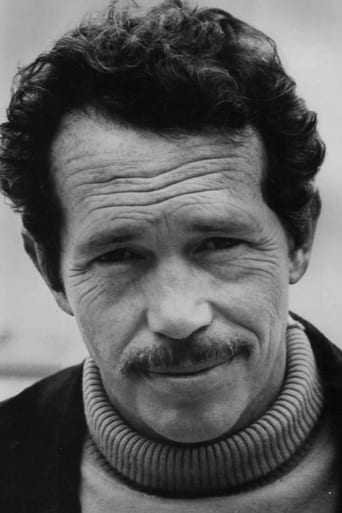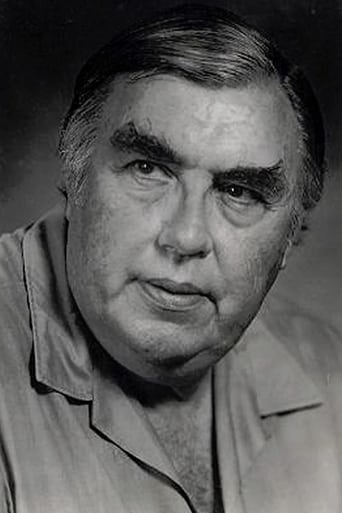ben hibburd
In the Heat of the Night is directed by Norman Jewison. It tells the story of a murdered businessman in a small southern town in Mississippi. The film stars Sidney Poitier as Virgil Tibbs, an African American Police detective on holiday from Philadelphia. At first he is accused of committing the crime, until he reveals that he is a detective to the local chief of Police played by Rod Steiger. Tibbs is then brought on to solve the case.In the Heat of the Night is an extremely well made film. It's primarily a Police procedural whilst featuring excellent social commentary on economic and racial Issues, America was facing in the late 60's especially in the South. The film displays increasingly hostile tensions between the local community and Tibbs. What the film does rather then portraying the local population as racist caricatures(other then a few characters that are irredeemable.), is add layers of depth to the majority of the townsfolk. This Is especially given to the chief of police Gilespie.The film explores other aspects of racism. It gives economic and social reasons as too why they have such hatred and bigotry directed at Tibbs, on top of their flat out racism. They try to justify their reasons because he wears better clothes, has a better job, has better pay, is better educated. The film is as much of an allegory about big city/smalltown mentality, and the divide between rich and poor.The plot of the film is a standard Police investigation. It does a great job keeping the viewer guessing throughout the film as too who the killer may be. The film has multiple suspects accused of the crime during the film, of which the viewer can never be truly sure as too who It is. This aspect of the film could of easily fallen victim to genre clichés. However the films screenplay is engaging on many different levels, and carries the murder mystery to a satisfying conclusion.Sidney Poitier gives a fantastic, under-stated central performance as Virgil Tibbs. he sells every moment of his characters journey through his facial expressions. He conveys every emotion from disgust to contempt to down right disbelief with authenticity. His charm and likability and his quest for justice makes him a compelling lead, one that you root for throughout the movie.His performance is juxtaposed against Chief Gillespie(Rod Steiger). Steiger gives a fantastic performance as Gillespie. He plays a small- minded, hotheaded Chief that is extremely quick to judgement and anger. He is given the most fleshed out role in the film. He brings an edge to the film. Where-as most actors would of tried too add levity to the character, he pulls no punches. He takes what could of been a one-note character and starts to make us feel sympathetic towards him by the end of the film. This is also aided by great writing from the screenplay.The film also contains a terrific score from ray Charles. It fits the tone of the film and feels like another character in the picture. Also a special mention goes to Warren Oates, he turns in a great performance as the dim witted deputy Sam Woods. The film features a fantastic supporting cast.In the Heat of the Night was a worthy recipient of it's best picture Oscar. It's a culmination of Norman Jewison's direction, a tight script, great score, and fantastic acting. That makes it not just an important film, but a great film, and one that is relevant today as it was back in 1967.
jimel98
First off, just to get it off my chest, every small town head law enforcement person is not a sheriff. I don't understand nor will I ever understand why so many people cannot make this very simple and straight forward distinction. Heck, even the television show based on the movie just HAD to put Stetsons on the Police because they figured, "Police and CHIEF have already been established, we HAVE to do SOMETHING to show they're actually all sheriffs!" Stupid, plain and simple. An easy concept for intelligent people to grasp, they are NOT all sheriffs.Whew. Sorry. It's always eaten at me and even though I know my tirade won't wake up the lethargic, I feel better venting....again.But enough of my bellyaching.This movie stands out as one of the all time classic films on a few levels. For one, it's and examination about race relations, not just in the south, but in general and how, even if you're not trying, you just might see that the bottom line is, we're all just people. There are good, there are bad, there are misunderstood and what color your skin happens to be, is totally irrelevant. Of course, all of the bad people in this happen to be white, but it's the circumstances under which the film takes. We see the transformation of some folks once they see Virgil Tibbs for who he is, not what he is. It's always good to watch when someone is enlightened, even a little.This movie is also a decent murder mystery. I grant you, not really the focus, but the compelling main plot IS the mystery of who the killer is and why he/she did it. The racial stuff is a dynamic sub-plot. Or is it the other way around? Hmmmm.It's also a very interesting character study. CHIEF Gillespie is shown to be clearly a complicated man who, though he wants to do the right thing, feels the need to prove himself even more so. He has a difficult time with being wrong or second guessed and yet, you see him occasionally second guessing himself and questioning his, or should I say the values of all around him.Tibbs is shown to be a good and righteous man who, as Gillespie points out, is deep down, "...just like the rest of us." in that he seems fixated on 'taking that fat cat off this hill.' Tibbs has convicted Endicott prior to even proving that Endicott actually did it. Just has Gillespie has done with others. The exchange outside of Endicott's house between Gillespie and Tibbs is priceless and the look on Tibbs' face when reality is thrown at him is extremely telling. And this exchange is one of the highlights of the film, and there are plenty others.The acting is outstanding. Each and every character is pretty much flawless, the weakest acting link (for me, anyway) was Quentin Dean as Delores. She didn't get LOTS of acting jobs after this, so I'm guessing I'm correct in my belief she was not great actress. It's unfortunate that she passed on at 58 years of age. She wasn't that bad. And of course, it's simply sad she passed at a relatively young age.But Rod Steiger and Sydney Poitier are two of the best, hands down. Warren Oates, never seemed to be acting, just actually being that person he was portraying, who always seemed to be like Warren Oates! The entire cast carries this without effort. I won't name them all, too many great performances to try.The dialogue is well written as well, VERY well written.Now for a little more nitpicking, sorry, it's in my blood. Though they may nor may not be spoilers, I feel better saying they are.First off, as much an expert as Tibbs is, it's amazing he knows everything about everything. Fern root? He knows all there is to know about Fern Root? Whew, there was a stroke of luck. No doubt fern root is a major factor in many of the cases he worked in Philadelphia! LMAO.I was amazed that the FBI could get the package, examine it and get it back to Mississippi within 24 hours, especially in 1967. REALLY? Why did Federal Express even need to be established? I'll close here. This movie is timeless, not 'dated'. It takes place when it takes place and when it takes place was a tough time for America for so many reasons, not that today is a walk in the park. But we see people for who they were then, and how some are now. Not all good people are white or black; nor are all bad people. (I'm not ignoring any other group, but this movie doesn't address any other groups, please hold off on any complaints about my lack of inclusiveness. Thank you.)


















